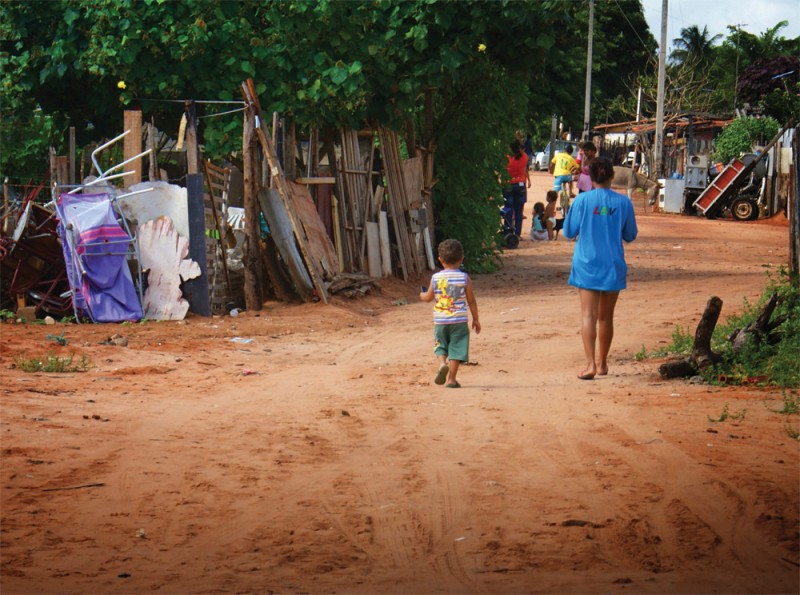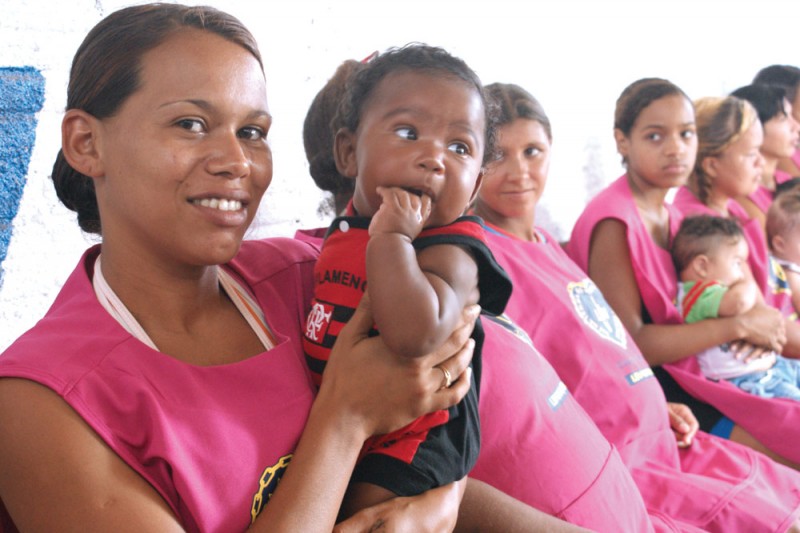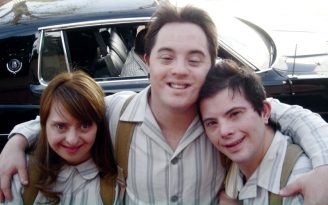
Goals and commitments to new generations
Mariane de Oliveira
Monday | August 18, 2014 | 1:43 PM | Last update: September 22, 2016, 4:07 PM (Brasilia time)
With less than a year to go before the final deadline for achieving the eight Millennium Development Goals (MDGs), considerable progress has been made in combating extreme poverty and other social ills. According to UNICEF’s 2013 Progress Report on Committing to Child Survival: A Promise Renewed, Brazil exceeded the goal established by the United Nations (UN) by 11 percentage points, which foresaw a reduction of 66 percent in child mortality (see on the next page box “Brazil exceeds expectations”).
In this respect, the Legion of Good Will’s socio-educational work in favor of families in a situation of social vulnerability helps achieve these goals in the five regions of the country, as the reader will see in the examples described in this article.
Present where people most need it, the LBV reaches locations that have major social demands, such as the community where Priscila da Silva, 23, lives with her three children. The Monte Celeste settlement, located in the metropolitan area of Natal (Brazil), suffers from a lack of infrastructure and basic services. Hygiene and health care are threatened, because the living conditions of local residents are precarious due to the absence of running water, sanitation, and electricity.

When the LBV’s team arrived at the settlement it found residents with no motivation to transform their lives for the better. “We saw that all the families were in a vulnerable situation, without basic health services, jobs, or housing. The houses were made of cardboard and didn’t even have an appropriate structure for us to provide assistance. Today, however, through the work of the LBV, we see that several changes have occurred,” said Oderlania Leite Galdino, responsible for the LBV in Natal.
At the beginning of the activities in favor of the local population it was found that the entire community was infested with jiggers (an insect that causes an infectious skin disease), not to mention pathologies that are generally associated with poor sanitary conditions, like verminosis. An assistance unit for the residents was built with the support of partners and the local population.
Along with its socio-educational programs and campaigns towards health prevention and promotion, the LBV took to the families of Monte Celeste the values of Solidary Citizenship. One of the initiatives warmly welcomed by the community was the Baby Citizen program, directed at pregnant women and mothers with children up to three years old. The program is guided by the concepts brought by the Pedagogy of Affection. Thanks to this action, Priscila and many other women who were assisted started receiving social support and guidance on the care needed for a healthy pregnancy and for the child’s first years of life.

In addition to receiving a layette and a specially prepared kit for the mother, the women assisted count on educational talks, in which the emphasis is placed on strengthening the ties of affection and family bonds. “I feel really happy and I want to keep attending the program. I’ve learned a lot of things here. Even though I’ve had two children, I didn’t know where to find the right vitamins that could help me in my third pregnancy. At the LBV I learned how important Love is and I also started believing in a better world for me and my family!” Priscila expressed confidently.
Several partners joined the Organization to help strengthen the support provided to the families. The partnership with the Nursing Cooperative of Rio Grande do Norte (COOPERN), for example, enabled the Monte Celeste settlement and other communities assisted by the LBV in the state capital to systematically benefit from health guidance and educational actions, which reinforce the socio-educational activities already being undertaken in these locations. “We were looking for an organization with which we could carry out actions that had a social reach in the health area. Fortunately, we came across the LBV, a serious organization. (...) From what I’ve seen, the LBV has also invested in organization and education,” said the President of COOPERN, Marcelo Bessa, to Foco magazine in November 2013.
Debates that educate
The Legion of Good Will’s socioeducational assistance offers guidance on health, hygiene, education, and culture. Every day, thousands of children and young people living in a vulnerable situation have access to quality content, undertake research, and engage in fraternal debates on current issues, such as prejudice, sexually transmitted diseases, and the harm caused by the consumption of alcohol and other drugs.
These and other important subjects are widely discussed in the “Convivência” (Living Together) classes, which have been included in the Organization’s schools curriculum since 1999. The initiative behind introducing a new school subject came from the LBV’s President, José de Paiva Netto, who was concerned with the risky behavior among young people. At the time he emphasized the importance of dealing with such issues from the viewpoint of an allencompassing Ecumenical Spirituality and, therefore, in harmony with ethical, ecumenical, and spiritual values.
According to Debora Stelzer, elementary education coordinator in the Good Will Educational Complex in São Paulo (Brazil), the Living Together discipline provides an environment for reflection, and the students begin to understand better each topic and different points of view. “They learn to be forewarned about problems, to say no to drugs and to alcohol. On several occasions, even students who have nutritional problems ended up exposing them and so we were able to help them solve this situation,” she said.
The educator emphasizes that the students themselves often choose the topics to be studied in the classroom. “Once the 5th grade students asked to discuss topics linked to body care, such as hygiene, the prevention of diseases, eating habits, etc... I remember that we invited in a pediatrician and the children took advantage of her presence to clear up their doubts. It was very interesting. Another time, the 8th grade students were curious to learn about Alzheimer’s disease and how to prevent it.”
A former LBV student, Priscila Mendes, 17, says that she learned a lot from this discipline: “Living Together classes are a time for reflection on our attitudes and on creating a better future for ourselves and for new generations. Young people could avoid going down the wrong path if they had lessons like this, which warn us and promote dialogue without prejudice.”
The LBV understands that investing in information represents an important instrument for social progress and for combatting prejudice. For this reason, the Organization has held for decades educational talks in its schools, Social Service Centers, and in other teaching units through partnerships. Moreover, on the Super Good Will Communication Network (radio and TV stations, the Internet, and publications) it publicizes its life-affirming campaigns that are against any form of prejudice, among which are AIDS — The virus of prejudice assails more than the disease itself and Don’t use drugs. To Live is Better!


